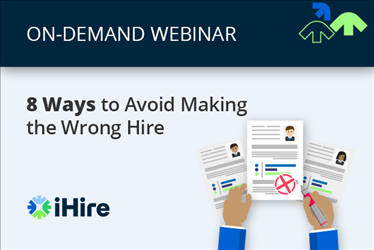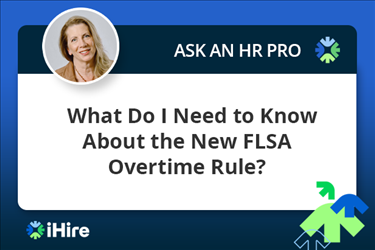- Employer Resources
- |
- Last Updated: March 19, 2024

Quick Guide to Small Business Tax Deductions for Hiring and Recruitment Expenses
Recruitment is essential to any growing business, especially amid industry shifts. Though small business hiring expenses can stack up, what you may not realize is that many of these costs may be tax deductible.
For the sake of your budget, don't wait until the last minute to manage your small business tax deductions. Instead, you should track your hiring and recruitment expenses throughout the year. This starts by understanding what hiring expenses you can and can't deduct.
What Are Tax-Deductible Expenses?
Many expenses associated with your business may be deductible during tax season, decreasing the amount you'll owe on the federal, state, and local levels. Some of the most common small business tax deductions include insurance, marketing, travel, and workspace costs.
Today's digital age makes it easier than ever to track your business expenses for taxes. Simply save your physical and online receipts, and be aware of what you can deduct at the end of the year. Tax deduction laws vary by state, so you should always consult with a tax professional to understand your particular situation.
6 Hiring and Recruitment Tax-Deductible Expenses
Tax deductions for small businesses may seem complicated, but they're easier to understand than many business owners think. Track the following hiring expenses throughout your recruitment processes.
1. Advertisement Costs
Advertisements and job postings often accrue substantial expenses in the hiring process. For example, many businesses pay to post and boost their available positions on online platforms. Plus, sharing your job postings via social media, local newspapers, and other outlets can help attract your target candidates.
With proper accounting, your business can deduct almost all recruiting-related marketing expenses at the end of the year.
2. Job Fairs and Recruitment Events
Job fairs, career fairs, and other recruitment events let you meet with high-quality candidates and make impressions among the crowd. In the process, you can reach your short-term and long-term recruitment goals by networking with the current talent pool.
Though the expenses are often overlooked, preparing for a job fair can get costly. Amid the event's chaos, ensure your team members hold onto their receipts. The following job fair expenses are tax deductible:
- Booth and entry fees
- Signage and presentations
- Business cards
- Brochures and handouts
- Gas mileage
3. Legal Fees and Consultations
From offer letters to non-compete agreements, recruitment often requires a bit of legal paperwork. This part of hiring is critical because it protects your business and staff from potential liability.
Most legal expenses associated with hiring are deductible at the end of the year. So, you shouldn't have to cut corners on your legal consultations.
4. Certifications and Training
In today's rapidly evolving workforce, finding candidates who fill all your skills gaps isn't always practical. Plus, the top certifications and skills are often changing in each industry. Instead, job recruiters now prioritize adaptability and a willingness to learn.
Training and professional development are a long-term investment in your employees and organization. Furthermore, certification is often essential for teams that work with heavy machinery or advanced software, for example. So, paying for training may be inevitable.
Fortunately, most employee training and certification costs are tax deductible. Though this doesn't cover in-house training, you can write off expenses from online courses, certification tests, training supplies, and more.
Hiring? We Can Help! Create Your Account Today.
5. Insurance Costs
Depending on your industry, your organization must pay for multiple types of insurance, such as workers' compensation and auto coverage for company drivers. Certain policies increase in price as you recruit more employees.
Fortunately, many of these insurance policies are tax deductible, including:
- Workers' compensation insurance
- General liability insurance
- Professional liability insurance
- Errors and omissions (E&O) insurance
- Commercial auto insurance
6. Relevant Workplace Expenses
Hiring and recruiting can add to your business's deductible expenses in many ways. For example, if a day of job interviews requires you and recruiters to stay during lunch, you can deduct any food and drink expenses needed for that time.
You should reassess your deductibles any time you launch a recruitment campaign or hire a new employee. Standard workplace expenses that may be impacted by hiring include:
- Office supplies and furniture
- Bank fees
- Internet and phones
- Coffee and food
- Work-related gas mileage
Manage Your Small Business Tax Deductions
Understanding and tracking your hiring expenses is a great way to maximize your small business tax deductions and lower costs as you recruit new employees for your team. Visit our Resource Center for more free hiring guidance, or explore our solutions for connecting with qualified talent in your industry.




